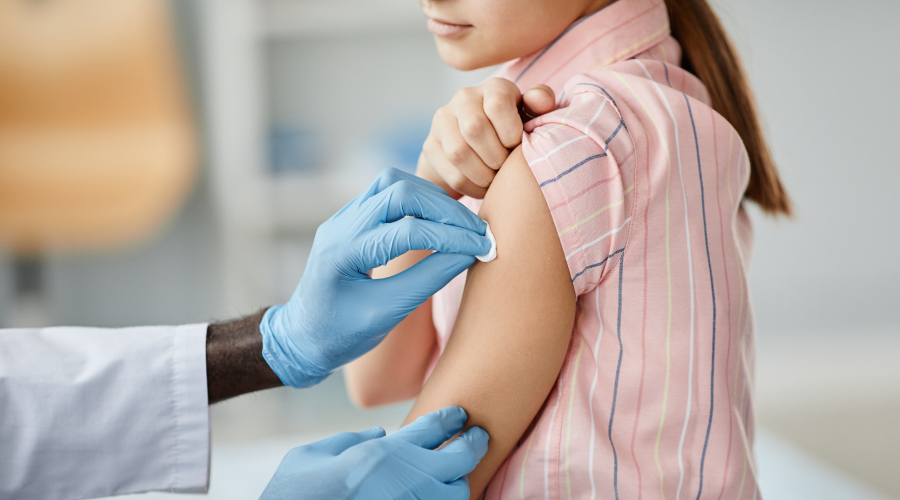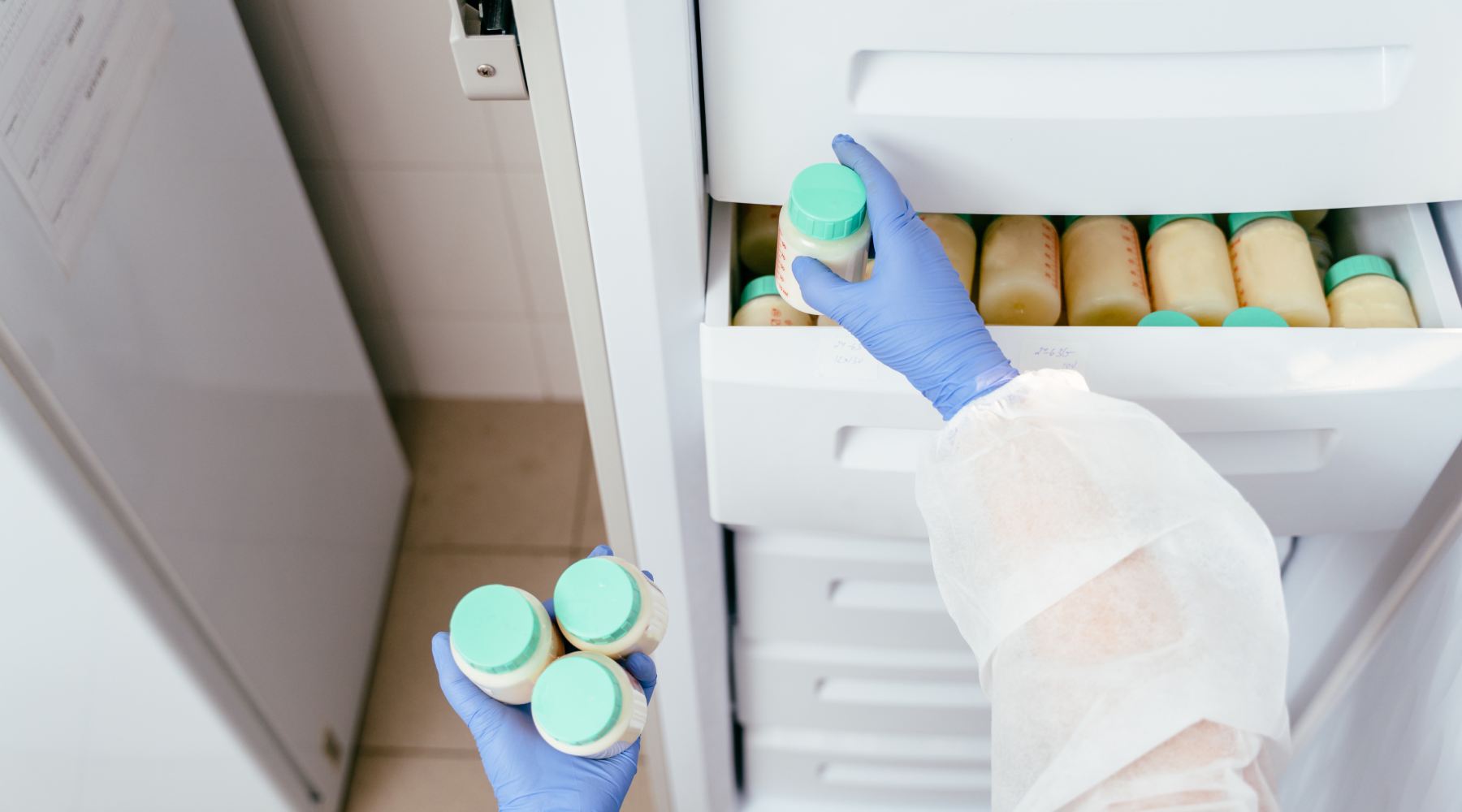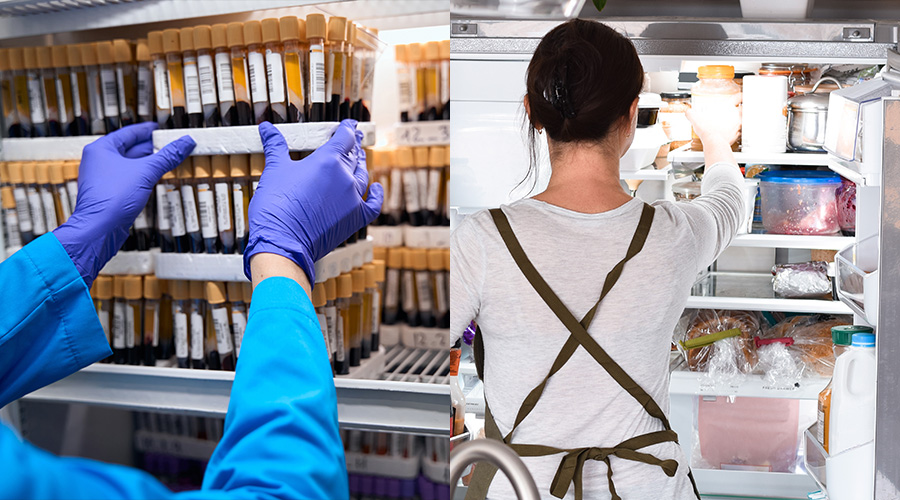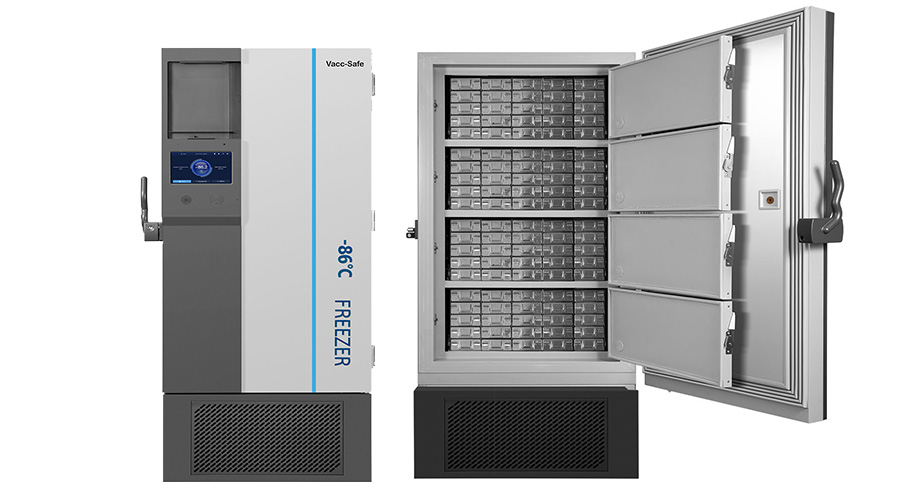Vaccines have contributed to saving millions of lives, but they can be rendered useless if not stored correctly. If they are left unrefrigerated for just a few hours, vaccines can quickly become spoiled and lose their potency. It is therefore imperative that healthcare professionals understand what happens when vaccines are left unrefrigerated, the steps for dealing with these affected products and the correct way to store vaccines.
What Happens to Vaccines That Are Incorrectly Stored?
Vaccines are products that train our immune system to create antibodies to protect itself against a specific disease. Vaccines are highly temperature sensitive, and should be stored within the “cold chain” process of between exactly +2°C and +8°C. Anything beyond these temperatures constitutes a “cold-chain breach.”
A “cold chain breach” can dramatically affect the effectiveness of a vaccine. As stated in the National Vaccine Storage Guidelines, any vaccine exposed to unsuitable temperatures for a prolonged period of time will lose its potency and is at risk of being rendered completely ineffective. They lose potency because they are incredibly delicate, biological substances. For instance, some vaccines, such as hepatitis A or hepatitis B, contain Aluminium compounds. These compounds within the vaccine are highly temperature sensitive, particularly under freezing, which can cause antigen degradation within the aluminium. Vaccines that require a liquid diluent, such as pneumococcal disease and tetanus, can freeze if exposed to temperatures that are much colder, which can also ruin their efficacy. Once vaccines lose their potency, this can never be reversed, and the longer they stay outside of their optimal temperature range, the higher the chance they become spoiled and unusable for patients. This not only wastes valuable expenses, but can waste your patients’ time as well.
Importantly, correct vaccine storage is regulated under the Australian Health Practitioner Regulation Agency (AHPRA). If healthcare professionals were found to have incorrectly stored vaccines, they can face significant legal action from AHPRA. Patients can also lodge legal claims against professionals if their administered vaccine was significantly affected by poor storage.

How to Deal With a Cold Chain Breach
All professionals involved in the cold chain, including logistics companies, medical professionals and manufacturers, are responsible for ensuring vaccines are stored and transported correctly.
This includes addressing any vaccines that may have been compromised by fluctuating temperatures. Prior to any potential cold chain breach, it is vitally important to establish an effective vaccine management checklist. This checklist should include designating someone who is responsible for vaccine storage and protocols, and having contact names and numbers readily available.
If a breach were to occur, you should ensure you abide by the following cold chain breach protocol:
- Immediately isolate the vaccines.
- Keep vaccines refrigerated between +2°C and +8°C, and label ‘Do not use’. Vaccines may need to be transferred to an alternative purpose-built vaccine refrigerator or cooler. If necessary, start conditioning ice packs/gel packs.
- Gather information about your vaccine storage conditions, including temperature readings from your thermometers. Also download all information from your data logger, which is typically done by connecting it to a computer via USB
- Contact your state or territory health department as soon as possible (during business hours). The health department will require vaccine details, data logging, and twice-daily temperature readings.
- Do not discard any vaccine until advised to do so by your state or territory health department.
- Take steps to correct the problem and to prevent it from recurring.
- For privately purchased vaccines, contact the manufacturer for advice.
For more information, please refer to the National Vaccine Storage Guidelines
How Long Can Vaccines Last Without Being Refrigerated?
Vaccines are highly sensitive to temperature, and therefore generally have a short shelf life when handled outside of refrigeration. Therefore, vaccines should be administered as soon as possible once removed. When removed from refrigeration, you should expect untouched vaccine vials to generally last a maximum of 3-4 hours. Although once your vial is punctured, you have much less time. As outlined in the Australian immunisation handbook, these vaccines must be administered within one hour at room temperature. It is important that any potential cold chain breaches are reported immediately to your state or territory health department.
These figures have been estimated from room temperature. If vaccines were left at a temperature higher than approximately 20°C, you should expect them to lose their potency at a quicker rate. Also, the average time will also largely depend on the type of vaccine itself. For instance, modern COVID-19 vaccines, such as Moderna, can be left at room temperature for up to 12 hours. You should always refer to the product information provided by the manufacturer or visit the TGA website for more information.
It is important to mention, the person administering a vaccine will be responsible for conducting proper vaccine storage etiquette and for looking out for any potential cold chain issues. They may not be the single, designated person responsible for managing vaccine storage, but they must also be trained to understand these protocols and the effects of a cold chain breach.
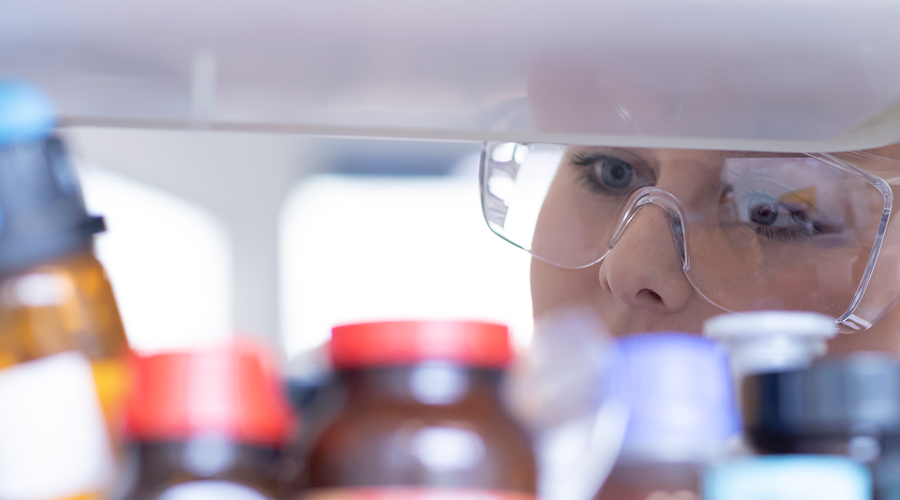
How to Correctly Store Vaccines
Understanding correct storage will ensure your medical supplies maintain their potency. As previously mentioned, storing vaccines within the “cold chain” is required for all vaccination providers under the National Vaccine Storage Guidelines.
Firstly, It is imperative that everyone involved in the storage process are trained in vaccine management, this ensures that all storage is properly dealt with and the products remain effective. Every clinic and vaccine practice should have regular orientation, education and training sessions for staff to ensure they are properly trained. This training must establish clear contingency plans for saving vaccines if a cold chain breach were to occur. Staff must also be made aware of the emergency contact numbers for their local state or territory health department.
Under correct vaccine management, health professionals must ensure their vaccines are stored within the temperature range of +2°C to +8°C at all times. Your vaccines are required under guidelines to be stored in purpose-built vaccine refrigerators. These fridges are uniquely designed to stay within the cold chain threshold and must adhere to strict temperature control. These fridges are fitted with a range of advantages that make them perfect for storing vaccines, including:
- Precise temperature – In order to maintain the strict temperature ranges between +2°C to +8°C, vaccine refrigerators have a refined control system to ensure they remain at this level. In addition, modern vaccine fridges, such as those developed by Vacc-Safe, are fitted with top cooling units to produce an air curtain to prevent outside heat from entering when the door is open.
- Monitoring of temperature – Vaccine refrigerators are designed not just to maintain a temperature, but to allow healthcare professionals to monitor. Dataloggers found within vaccine refrigerators record temperatures at regular intervals and put all information onto a USB flash drive. This allows you to transfer all monitoring to an external device.
- Locks and security – With sensitive material such as vaccines, there is a heightened level of security. All medical refrigerators should come with a lock fitted, preventing anyone from easily accessing your storage. Can be in the form of key locks, or pins and passwords.
- Alarms – Because vaccines are highly sensitive to changes in temperature, medical fridge alarms immediately alert healthcare professionals to any variations. Alarms can come in many forms: audible, visual, or remote notifications for temperature fluctuations.
- Uninterruptible power supply (UPS) backup power source – Having a backup power source will protect your vaccines if a power outage were to occur. A medical refrigerator temperature can last for less than 30 minutes following an outage; therefore, having a backup supply that keeps your fridge running is vital. Modern medical refrigerators can be fitted with built-in UPS systems or external backups.
- Glass Door – Having a glass door is imperative for safe vaccine storage. A glass door that gives you proper visibility, allows you to directly see where your contents are arranged before opening the door. This saves valuable time, and reduces heat loss during door opening periods.
- Interior Light – Although it is one thing to have a glass door, you must be able to see within the refrigerator too. Having an interior light that illuminates your products, supplement to a glass door can also dramatically reduce your door opening times.
- Range of sizes for the appropriate use – Vaccine refrigerators are available in a range of sizes to suit different facility demands. For instance, smaller clinics and community pharmacies may use a compact 50-litre refrigerator, which is ideal for fitting into limited spaces. Facilities may also choose to purchase a medium-sized, 350-litre refrigerator, while larger hospitals and laboratories might opt for a 1006-litre model.
Medical fridges are also subject to regular checks to ensure they are fulfilling their temperature requirements for storage. Within Australia, the Therapeutic Goods Administration (TGA) regulates vaccine refrigeration equipment, with regular reporting checks to demonstrate the fridge’s temperature control, monitoring, and storage conditions. Healthcare facilities are responsible for following these regulations and for ensuring that vaccines are potent. Failure to comply with these standards may result in significant legal action from AHPRA.
Household refrigerators are highly unsuitable for storing vaccines and must be avoided because they are designed for food storage and do not have the accurate temperature stability of medical fridges. Household fridge temperatures can vary dramatically, and they are not covered under the same guidelines and compliance checks as medical technology.
If you’re looking to transport vaccines, then the same rules apply – keep them at the same temperature range of between +2°C to +8°C. In transport situations, portable purpose-built refrigerators are available with fitted pull-handles and wheels for easier moving. If you’re planning on transporting vaccines for longer than 3 days, then you must use a specialised vaccine cooler. These are a purpose built product, with thick walls that can stay within the cold chain range even when exposed to outer temperatures of +43°C.
Importantly, not all vaccines will be required for storage in the cold chain temperature range. For instance, some vaccines may be frozen instead. The Pfizer, COVID-19 vaccine is frozen as correct storage, within an Ultra Low Temperature (ULT) freezer at between -90°C to -60°C. They must be stored at this low temperature because of the nature of this vaccine; they are made from a molecule called mRNA, which although allows faster vaccine production, is much more susceptible to heat and needs to be frozen. ULT freezers are designed specifically to keep within these ultra low temperatures, with a temperature range between -40°C and -150°C. Other vaccines that must be stored within a ULT freezer include products that harbour a live-attenuated virus, such as measles or varicella (chicken pox).
If your vaccines are not stored at the correct temperature, they will quickly lose their potency. It is imperative that in order to avoid cold chain breaches, you’re aware of how vaccines respond to non-refrigeration and the steps you can take to store them correctly. The friendly team at Vacc-Safe is Australia’s leading medical storage manufacturer, and will be happy to help you choose the right storage technology for your healthcare needs.
